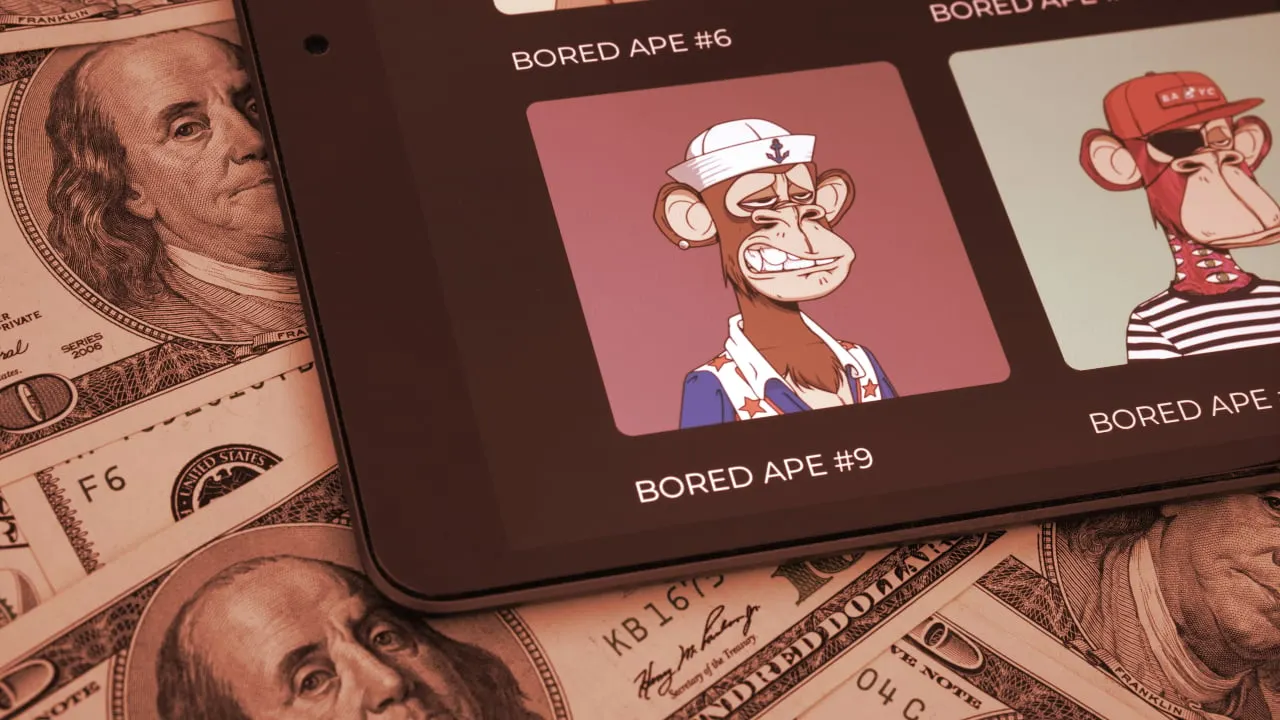A new research report out today from Mike Novogratz’s Galaxy Digital found that Ethereum NFT creators have been paid a total of $1.8 billion in royalties from secondary sales on marketplaces like OpenSea.
In the report, Galaxy Digital researchers Sal Qadir and Gabe Parker also found that NFT creators’ royalty rates on OpenSea—the top overall marketplace by trading volume—have doubled over the past year on average, jumping from a 3% cut of sales to 6%.
The researchers also discovered a concentration of royalties among just 10 entities, data that suggests the NFT economy may be more centralized than some might have thought.
The top 10 took home nearly half a billion dollars worth of royalties, amounting to 27% of all Ethereum NFT royalties earned. According to the report, which relies on data from Flipside Crypto, 482 NFT collections collectively earned 80% of all market royalties.
NFTs—unique blockchain tokens that signify ownership—are typically first “minted” or sold on a third-party website developed by the NFT creators, or via a dedicated launchpad available from certain marketplaces. After the mint, NFTs can then be resold through marketplaces like OpenSea, Magic Eden, LooksRare, and others.
Bored Ape Yacht Club creator Yuga Labs takes the top spot on the list with the most NFT royalties earned. The $4 billion-dollar startup, which has expanded its focus to developing blockchain games, has raked in well over $147 million from royalties alone. That’s not surprising, considering that Yuga’s massive Otherside metaverse land mint earlier this year resulted in $561 million in total sales in just 24 hours.
While new NFT marketplaces are still popping up regularly, OpenSea still makes up the lion’s share of all NFT resales, according to data from Dune Analytics and the Galaxy report, which states that OpenSea makes up over 80% of all Ethereum NFT marketplace volume.
When minting NFT projects through OpenSea, creators can choose the percentage of royalties they’d like to receive from secondary sales. Those creators have collectively earned $76.7 million to date in royalties from such sales. Measured together, that’s enough for third on Galaxy’s list.
Other notable NFT creators on the list include Chiru Labs (Azuki), Proof (Moonbirds and Proof Collective), and the teams behind The Sandbox, Doodles, and Gary Vaynerchuk’s VeeFriends.
Citing a separate data set focused only on legacy brands, Galaxy highlighted Nike as the top earner with $91.6 million worth of earnings. That listing includes various non-Nike-branded NFT offerings from RTFKT, a digital studio that Nike acquired in 2021. Other brands on the list include Dolce & Gabbana, Gucci, and Adidas.
Royalty rumblings
Historically, royalties have been praised as an important part of the NFT ecosystem, providing a steady stream of income for creators to continue developing various plans on their project “roadmaps,” whether that’s creating a video game, throwing token-gated parties, or hiring more community moderators, for example.
I think what is obvious to me on NFT royalties
1. they are a really cool mechanism for creators to earn additional revenue
2. if it's not enforced directly in the tech the market will move around them
3. they must be unambiguous to users🧵— toly 🇺🇸 (@aeyakovenko) October 14, 2022
Qadir and Parker call royalties a “core value proposition of NFTs,” but also admit that royalties are not currently enforceable on-chain without sacrificing some principles of decentralization and self-custody—values many crypto proponents hold dear.
On-chain royalty enforcement arguably triggers a new kind of blockchain trilemma not entirely unlike the one Ethereum co-founder Vitalik Buterin has discussed at length, and rival platform Algorand claims it solves. Instead of on-chain enforcement, it’s historically been up to centralized NFT marketplaces to choose to enforce creator-imposed royalties.
NFT royalties have become the subject of much debate this month. Pseudonymous Solana NFT creator Frank made the decision to eliminate royalties from his DeGods and y00ts profile picture NFT collections entirely on October 9, calling the move an “experiment.”
Our next experiment. pic.twitter.com/VmoDfXvcyu
— DeGods (@DeGodsNFT) October 9, 2022
His move came following a rise in Solana marketplaces either ignoring creator royalties or letting traders choose whether or not to pay them. By not paying royalty fees to creators, NFT sellers typically avoid paying a 5% to 10% cut of the secondary sale price.
Ultimately, top Solana marketplace Magic Eden announced last week that it would follow suit and make paying royalties optional after losing significant market share to rival platforms. “We understand this move has serious implications for the ecosystem,” the marketplace said on Twitter, adding that it hopes “to see new standards that protect royalties” developed.
Some on Twitter have criticized Magic Eden for its decision, calling it “by far the worst decision” and a “desperate grasp for market share.” Metaplex, creator of Solana’s current NFT standard, said on Thursday that it is developing a new standard that can enforce royalties on-chain.
As the debate surrounding NFT royalties rages on, one thing’s for sure: abandoning royalties means creators would be parting with a substantial source of passive income—and potentially leaving millions on the table.

